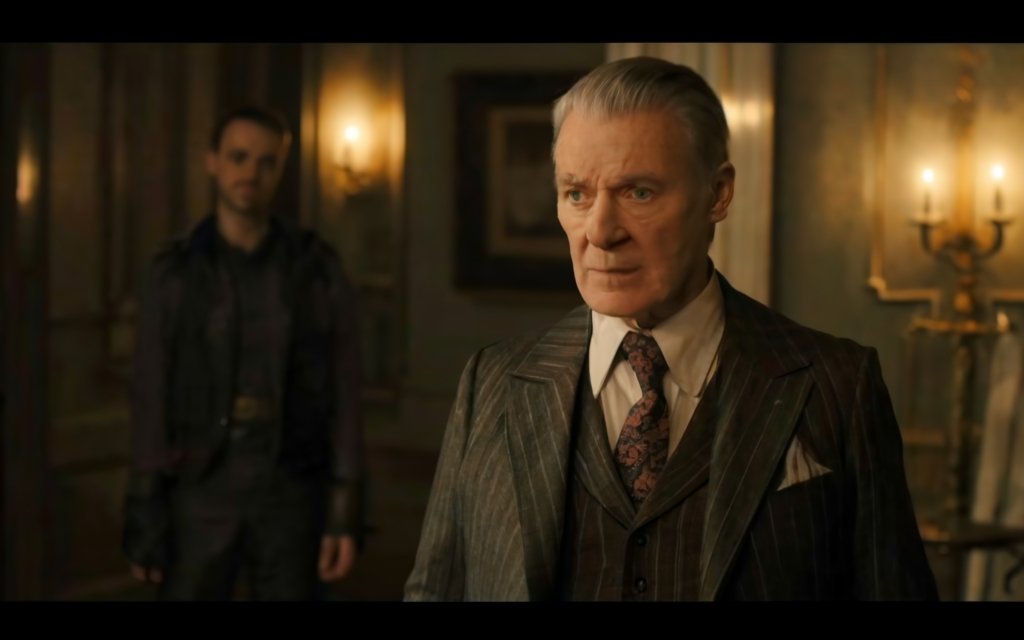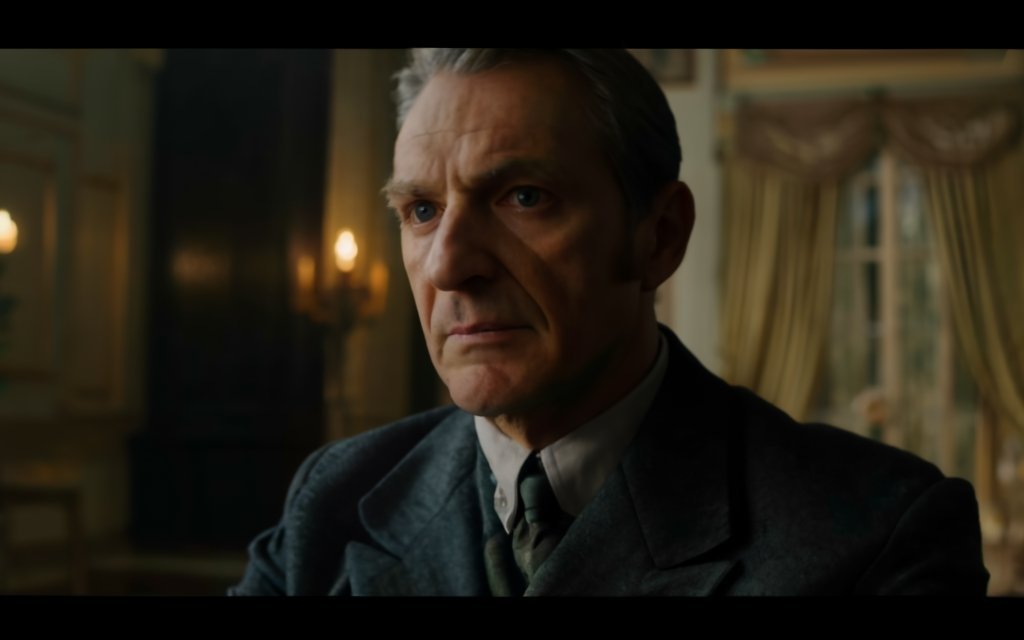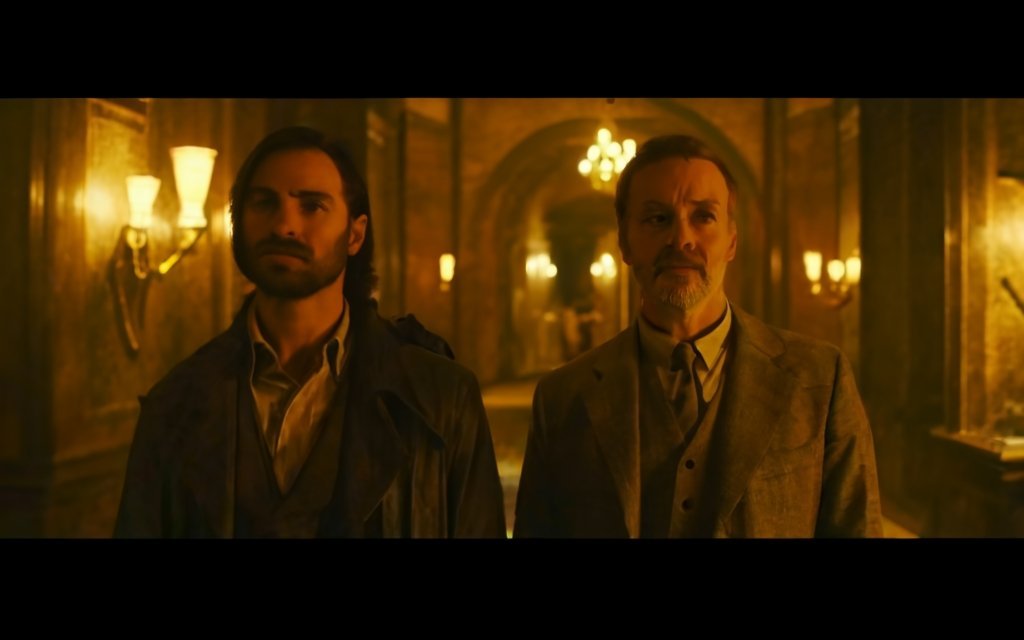In the world of cinema, there are films that leave an indelible mark, films that challenge our perceptions, and films that simply entertain. “Manodrome” is one such film that has left a profound impact on me. As a film enthusiast, I was eagerly anticipating this movie, not just because of its unique premise, but also because of the talented actors who brought it to life.
This article is a comprehensive review of “Manodrome”, a film that explores the darker side of masculinity and societal norms. I will delve into the performances of the main actors, the film’s narrative, and its impact on the audience. So, if you’re a fan of thought-provoking cinema, stick around as we dive into the world of “Manodrome”.
III. Plot Summary
A. Brief synopsis of the movie.
Manodrome is a 2023 American drama film directed by John Trengrove. The movie follows Ralphie (Jesse Eisenberg), a man struggling with his identity, whose life takes a dark and unsettling turn after encountering a group of men led by the enigmatic “Dad Dan” (Adrien Brody) .
B. Key plot points without spoilers.
The movie is an incel-era update of “Fight Club,” a story of an average guy whose inner demons are unleashed when he meets a group of men trying to reclaim their perceived place in the world .
The film delves deep into the psyche of a protagonist, Ralphie, whose life takes a dark and unsettling turn after encountering a group of men led by the enigmatic “Dad Dan” .
The movie has been described as a hollow provocation with about as much to say about the human condition as an internet troll who learned a few buzzwords this morning and wants to spew them at somebody to feel superior .
C. Setting and its impact on the narrative.
The movie is set in a dystopian world where the internet has become a breeding ground for toxic masculinity and incels .
The setting plays a significant role in the narrative, as it highlights the impact of the internet on the lives of people and how it can lead to the radicalization of individuals . The movie’s setting is dark and unsettling, which adds to the overall tone of the film .
IV. Cinematography and Visuals.
A. Overview of the film’s visual style.
Manodrome is a visually stunning film that uses a variety of techniques to create a unique and immersive experience for the viewer . The film’s visual style is dark and moody, with a color palette that is dominated by shades of blue and gray .
B. Cinematographic techniques used.
The movie uses a variety of cinematographic techniques to create a sense of unease and tension throughout the film .
The camera work is often shaky and handheld, which adds to the overall feeling of chaos and instability . The film also uses a lot of close-up shots to highlight the emotions of the characters and their reactions to the events unfolding around them .
C. Use of color, lighting, and composition.
The movie’s use of color, lighting, and composition is masterful and adds to the overall tone of the film . The color palette is dominated by shades of blue and gray, which creates a sense of coldness and detachment .
The lighting is often dim and moody, which adds to the overall feeling of unease and tension . The composition of the shots is also carefully crafted to create a sense of claustrophobia and confinement .
D. Visual effects and their effectiveness.
The movie does not rely heavily on visual effects, but the few that are used are effective in creating a sense of unease and tension .

The film’s use of practical effects is particularly impressive, with some scenes featuring elaborate and intricate set pieces . Overall, the movie’s visual style is one of its strongest aspects and adds to the overall tone and atmosphere of the film .
V. Acting and Characterization.
A. Evaluation of lead actors’ performances.
Jesse Eisenberg’s performance as Ralphie is a standout in the film . He delivers a nuanced and layered performance that captures the complexity of his character’s emotional journey. Adrien Brody’s portrayal of Dad Dan is also noteworthy, as he brings a sense of gravitas and intensity to the role .
B. Supporting cast and their contributions.
Odessa Young as Sal and Philip Ettinger as Jason deliver solid performances that complement the lead actors’ performances . They bring depth and nuance to their respective roles, adding to the overall quality of the film.
C. Chemistry between the characters.
The chemistry between the lead actors is palpable, with Eisenberg and Brody sharing an intense and complex dynamic that drives the narrative forward .
The supporting cast also has great chemistry, with Young and Ettinger delivering strong performances that complement the lead actors’ performances.
D. Character development throughout the movie.
The movie explores the character development of Ralphie, who undergoes a dark and unsettling transformation over the course of the film .
The character development is well-executed, with Eisenberg delivering a nuanced and layered performance that captures the complexity of his character’s emotional journey. The supporting characters also undergo significant character development, adding depth and nuance to the film’s narrative.
VI. Narrative and Storytelling.
A. Analysis of the Storyline.
“Manodrome” starts by following the protagonist, Ralphie, in his daily routine. The film captures his struggle with his identity, his comparisons to others, and his attempts to gain muscle. It’s clear that something is simmering beneath his tough exterior—a wounded child whose anger towards his father leaving him and his mother behind is still very present.
The film’s atmosphere is dull, dreary, and lifeless, taking place in a New York town in the dreadful winter. Ralphie seems removed, impatient, and less than serious. There’s a sinister nature lurking underneath and it’s begging to come out.
B. Pacing and its Impact on the Viewing Experience.
The pacing of “Manodrome” is slow and deliberate, allowing the audience to fully absorb the protagonist’s struggles and the film’s exploration of themes.
The film’s atmosphere is dull, dreary, and lifeless, taking place in a New York town in the dreadful winter. This setting and pacing contribute to the overall viewing experience, enhancing the film’s themes and the protagonist’s struggles.
C. Plot Twists and their Effectiveness
The film offers a few surprising twists and turns, such as Ralphie’s encounter with a group of wealthy men who help people like him. The plot unfolds as Ralphie joins the group, headed by a suave, patriarchal leader called Dad Dan.

The group practices celibacy and only answer to themselves, illuminating the man as God trope. They have completely cut themselves off from family, friends, and partners. This plot twist is effective in adding depth to the film’s themes and exploration of masculinity.
D. Use of Flashbacks or Non-Linear Narrative Elements.
“Manodrome” does not use flashbacks or non-linear narrative elements. Instead, it follows a linear narrative that explores the protagonist’s struggles with his identity and his attempts to gain acceptance from a group of men. The film’s linear narrative allows the audience to fully understand the protagonist’s struggles and the film’s exploration of themes.
VII. Themes and Symbolism.
A. Identification and Analysis of Major Themes.
The major theme of “Manodrome” is toxic masculinity. The film explores this theme through the protagonist’s struggles with his identity and his attempts to gain acceptance from a group of men. The film also explores the theme of societal norms and the emergence of toxic incels across the internet.
B. Symbolic Elements and their Significance.
The title “Manodrome” is a play on the term “manosphere,” which refers to online heterogeneous forums comprised of misogynistic and masculine individuals. The root “drome” is a large specially prepared place, commonly used in reference to an airfield or airstrip.
Regarding the film’s context, “Manodrome” symbolizes the suburban home that serves as the haven for Dad Dan’s male family. This symbolism is significant as it represents the group’s isolation from the rest of the world and their attempt to create their own world.
C. Social, Cultural, or Political Commentary within the Film.
“Manodrome” offers a social, cultural, and political commentary on the theme of toxic masculinity. The film criticizes the emergence of toxic incels across the internet and the societal norms that promote violence and anti-feminism. The film also comments on the struggles of individuals who feel disenfranchised and seek companionship in shadowy groups.
VIII. Soundtrack and Score.
A. Evaluation of the Musical Score.
The musical score for “Manodrome” is composed by an unknown artist, contributing to the film’s overall atmosphere. The score is integral to the film’s narrative, providing a backdrop for the protagonist’s inner turmoil and the group’s activities. The score’s effectiveness lies in its ability to mirror the film’s tension and build suspense.
B. Song Selection and its Relevance to the Narrative.
The film features three songs: “Jayce Is Coming” by Kara Jones. These songs are relevant to the narrative as they contribute to the film’s atmosphere and help convey the protagonist’s emotions. The song “Jayce Is Coming” is particularly significant as it encapsulates the protagonist’s inner turmoil and his struggle for acceptance.
The Trailer.
C. Sound Design and its Impact on the Atmosphere.
The sound design in “Manodrome” is impactful, contributing to the film’s overall atmosphere. The film’s setting in a New York town in winter, along with the sound design, creates a cold, dreary, and isolated atmosphere that reflects the protagonist’s emotional state and the group’s isolation from the rest of the world.
IX. Reception and Critic Reviews.
A. Overview of General Audience Reception.
The general audience reception for “Manodrome” is mixed. Some viewers find the film to be a thought-provoking piece of queer filmmaking that should not be missed. Others, however, find the film to be too intense and lacking in depth.
The film’s exploration of toxic masculinity and its impact, as well as a strong warning about the dangers of enabling broken men, have been both praised and criticized.
B. Notable Critic Reviews and their Perspectives.
Critics have had mixed reactions to “Manodrome”. Some, like Chris Barsanti of Slant Magazine, praise the film for its slow build of tension and its ability to hold Ralphie’s view of the world separate from that of the film’s. Others, like Variety’s Peter Debruge, criticize the film for lacking depth and nuance needed to effectively explore the state of contemporary masculinity.
C. Awards or Nominations Received.
“Manodrome” was nominated for the prestigious Golden Bear and the Teddy Award for Queer Cinema at the 73rd Berlin International Film Festival. However, it did not win any awards.
X. Comparison with Other Films.
A. Similarities with Other Movies in the Same Genre.
“Manodrome” shares similarities with other films that explore themes of masculinity and societal norms. It bears resemblance to “Fight Club” and “Taxi Driver”, both of which explore the darker side of masculinity and the impact of societal pressures on individuals. The protagonist in “Manodrome”, like those in these films, grapples with his identity and the expectations society places on him.
B. Unique Elements that Set It Apart.
Despite these similarities, “Manodrome” has unique elements that set it apart. The film explores the theme of toxic masculinity, which is a relatively new and under-explored theme in cinema. The film also offers a unique perspective on the emergence of toxic incels across the internet, providing a contemporary commentary on societal issues.
C. Influences from Other Works or Filmmakers.
“Manodrome” is influenced by various works and filmmakers. The film’s exploration of masculinity and societal norms is reminiscent of the works of filmmakers like David Fincher and Paul Schrader, who have often tackled similar themes in their films.

The film’s exploration of the emergence of toxic incels across the internet is influenced by the works of documentary filmmakers like Alex Gibney, whose work often explores the darker side of the internet.
XI. Personal Reflection.
A. Reviewer’s Overall Impression of the Movie.
“Manodrome” is a thought-provoking film that explores the darker side of masculinity and societal norms. The film’s exploration of these themes is both insightful and unsettling. The performances of the cast, particularly Jesse Eisenberg, are commendable and effectively convey the protagonist’s inner turmoil.
B. Favorite Moments or Aspects.
One of the standout moments in the film is the performance of Jesse Eisenberg as the protagonist, Ralphie. His portrayal of Ralphie’s inner turmoil and his struggle with his identity is both compelling and unsettling. The film’s exploration of the theme of toxic masculinity is also a highlight, providing a contemporary commentary on societal issues.
C. Critique of Any Shortcomings.
However, the film also has its shortcomings. The film’s narrative is disjointed and the themes are underdeveloped. The film also fails to tie its hot-button issues into a coherent statement or character study. Despite these shortcomings, the film is still a thought-provoking exploration of masculinity and societal norms.
D. Final Thoughts on the Film’s Significance or Impact.
In conclusion, “Manodrome” is a thought-provoking film that explores the darker side of masculinity and societal norms. Despite its shortcomings, the film provides a unique perspective on these themes and offers a contemporary commentary on societal issues.
The film’s exploration of toxic masculinity and the emergence of toxic incels across the internet is a significant contribution to cinema.
XII. Conclusion.
A. Recap of Key Points from the Review.
“Manodrome” is a film that explores the darker side of masculinity and societal norms. The film’s exploration of these themes is both insightful and unsettling.
The performances of the cast, particularly Jesse Eisenberg, are commendable and effectively convey the protagonist’s inner turmoil.
The film also offers a unique perspective on the emergence of toxic incels across the internet, providing a contemporary commentary on societal issues.
B. Final Rating or Recommendation.
Despite its shortcomings, “Manodrome” is a thought-provoking film that provides a unique perspective on masculinity and societal norms. The film’s exploration of toxic masculinity and the emergence of toxic incels across the internet is a significant contribution to cinema.
However, the film’s narrative is disjointed and the themes are underdeveloped. Despite these shortcomings, the film is still a thought-provoking exploration of masculinity and societal norms.
C. Encouragement for the Readers to Watch or Skip the Movie.
If you are interested in exploring the darker side of masculinity and societal norms, “Manodrome” is a film worth watching. The film’s exploration of these themes is both insightful and unsettling.
However, if you are looking for a film with a coherent narrative and well-developed themes, you might want to skip “Manodrome”.
The Actors In The Film:
The main actors in the movie “Manodrome” are:
Jesse Eisenberg: Jesse Eisenberg plays the protagonist, Ralphie. He delivers the role in his usual shy-like, anti-social, neurotic mannerisms for which he’s known. Interestingly, audiences get to see a buffed-up Eisenberg, as Ralphie regularly visits the gym to help him de-stress.
Despite the criticism of the film’s screenplay and direction, Eisenberg delivers an incredible performance. He switches from a calm, supportive boyfriend to a violent sociopath who ends up losing his girlfriend and being a murderer. Although not an Oscar-worthy performance, Jesse Eisenberg gives his all in portraying the character 1.
Adrien Brody: Adrien Brody’s character is not detailed in the provided sources, but his presence is mentioned in the cast list.
Odessa Young: Odessa Young’s character is not detailed in the provided sources, but her presence is mentioned in the cast list.
Sallieu Sesay: Sallieu Sesay plays Ahmet, an antagonizing character at the gym. From his first appearance in Manodrome, he tries to intimidate Ralphie. As their paths continue to cross, Ralphie’s dislike for him turns from an unexplainable attraction to hatred.
It is later revealed that Ahmet is gay, with their shared animosity being a tense sexual tension between them. However, Ralphie chooses to take “control of his masculinity” by subduing Ahmet. Towards the end of Manodrome, after their sexual encounter, Ralphie shoots Ahmet dead in the head 1. You should read another article i wrote about >>>>> Napoleon Movie Review to learn more.
Dennis Guy, I am a seasoned film critic and storyteller extraordinaire, is the driving force behind the insightful and captivating movie reviews on MovieReviewFY.com. With a passion for cinema that transcends genres and a keen eye for detail, Dennis brings a wealth of knowledge and experience to the world of film critique.








